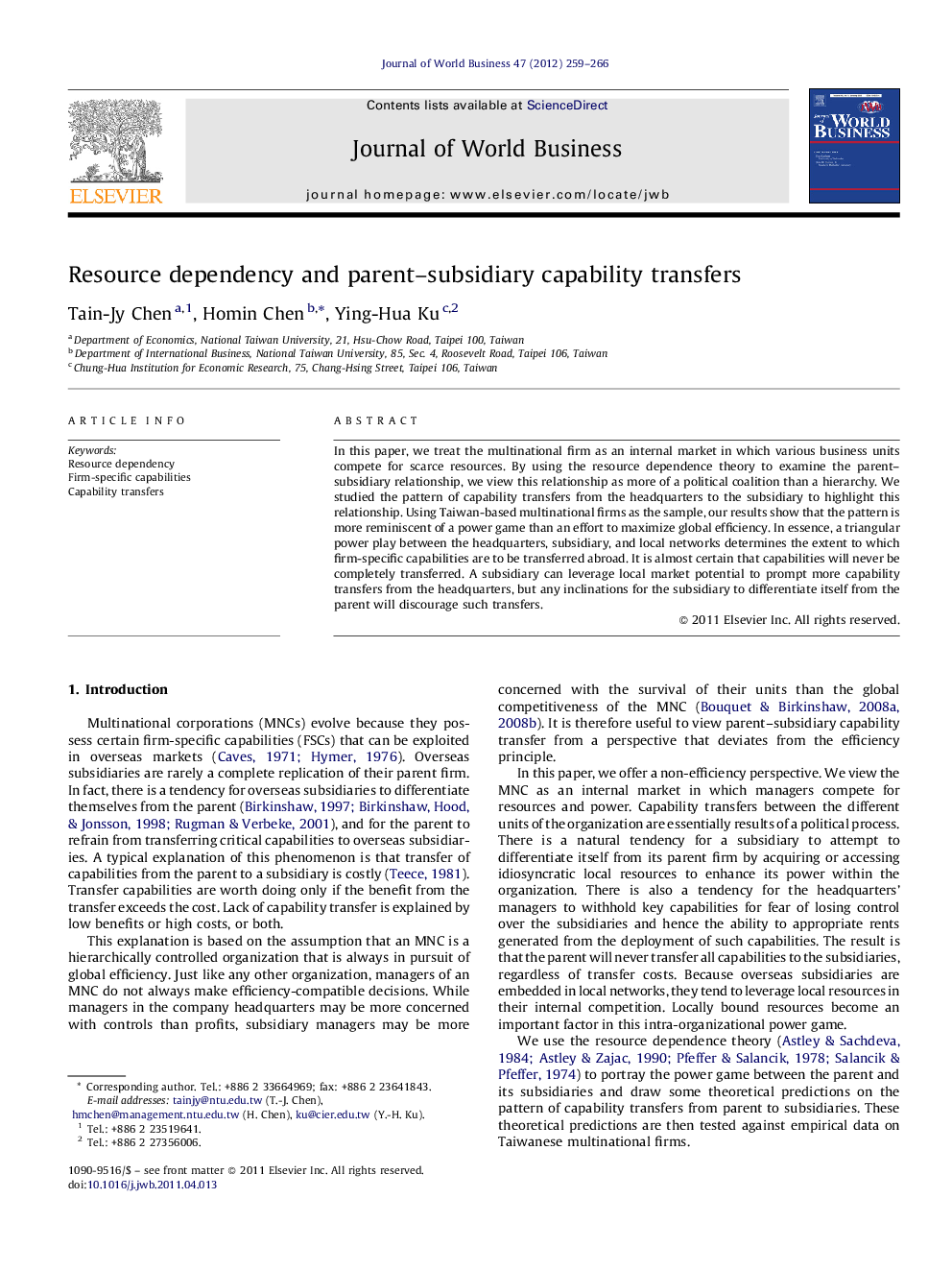| Article ID | Journal | Published Year | Pages | File Type |
|---|---|---|---|---|
| 1001604 | Journal of World Business | 2012 | 8 Pages |
In this paper, we treat the multinational firm as an internal market in which various business units compete for scarce resources. By using the resource dependence theory to examine the parent–subsidiary relationship, we view this relationship as more of a political coalition than a hierarchy. We studied the pattern of capability transfers from the headquarters to the subsidiary to highlight this relationship. Using Taiwan-based multinational firms as the sample, our results show that the pattern is more reminiscent of a power game than an effort to maximize global efficiency. In essence, a triangular power play between the headquarters, subsidiary, and local networks determines the extent to which firm-specific capabilities are to be transferred abroad. It is almost certain that capabilities will never be completely transferred. A subsidiary can leverage local market potential to prompt more capability transfers from the headquarters, but any inclinations for the subsidiary to differentiate itself from the parent will discourage such transfers.
